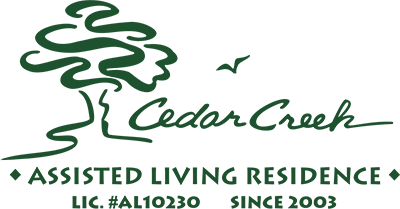Purpose: On April 6th, 2022, Governor Ron DeSantis signed into law the In-Person Visitation bill creating Chapter 408.823, its subject “In-person visitation”. This guarantees Florida families the fundamental right to visit their loved ones receiving care in healthcare facilities. This policy and these procedures are intended to serve in compliance with the regulations set forth in Chapter 408.823, Florida Statutes. A resident may designate a visitor who is a family member, friend, guardian, or other individuals as an essential caregiver. This policy will outline in-person visitation, screening, and sanitation for visitors upon.
Policy: The following are the procedures to be followed to identify Essential Caregivers for residents and the expectations. These procedures will be administered equally to all residents that request to have an essential caregiver. Essential caregiver visitors provide emotional support to help a resident deal with a difficult transition or loss, upsetting event, making major medical decisions, needs cueing to eat and drink, stops speaking, or end-of-life. Essential caregiver visitors may be allowed entry into facilities on a limited basis for these specific purposes. The provider must allow at a minimum in-person visitation for at least 2-hours daily under these circumstances. At Cedar Creek Assisted Living, the 2-hour visitation will be between 9:00 a.m. – 7:00 p.m. Cedar Creek may make exceptions to the 2-hour visitation on a case-by-case basis for end-of-life residents.
Procedures:
I. For designation and utilization of essential caregiver visitors.
1. Cedar Creek will provide the Agency for Health Care Administration (AHCA) with a copy of the facility’s essential caregiver visitor’s policy and procedure, with the initial licensure application, renewal application and/or change of ownership application.
2. Cedar Creek essential caregiver visitor’s policy and procedure is available on Cedar Creek’s home website page.
3. Cedar Creek will set a limit on the total number of visitors allowed in the facility at any given time based on the ability of staff to safely screen and monitor and the space to accommodate the essential caregiver visitors.
a. Identify locations for visitation/care to occur planning for residents in shared spaces and facilities with minimal common space to identify maximum time availability.
b. Provide outdoor visitation spaces that are protected from weather elements, such as the front porches.
c. Create indoor visitation spaces for residents in a room that is not accessible by other residents or in a resident’s private room if the resident is bedbound and for health reasons cannot leave his or her room
4. All residents and/or POA/Guardian if appropriate will be asked if they want to identify an Essential Caregiver.
5. All new residents will be asked if they would like to identify an Essential Caregiver upon move-in.
6. All residents will be allowed to update as requested the named Essential Caregiver of record within 2 business days of request.
7. Residents are allowed in-person visitation in all the following circumstances, unless the resident, client, or patient objects:
a) End-of-life situations.
b) A resident who was living with family before being admitted to the provider’s care is struggling with the change in environment and lack of in-person family support.
c) The resident is making one or more major medical decisions.
d) A resident is experiencing emotional distress or grieving the loss of a friend or family member who recently died.
e) A resident needs cueing or encouragement to eat or drink which was previously provided by a family member or caregiver.
f) A resident who used to talk and interact with others is seldom speaking.
8. Maintain a visitor log for signing in and out.
9. No more than one essential caregiver visitor may be designated per resident.
10. The policy need NOT prohibit essential caregiver visitor visits, if the specific resident to be visited is quarantined, tested positive, or showing symptoms of a communicable disease. Visits in these circumstances will likely require a higher level of PPE than standard surgical masks. The general visitation requirement that the facility has no new facility-onset cases of a communicable disease (for example COVID-19) is not applicable to visitation by essential caregiver visitors.
11. Essential caregiver visitors must wear when required Personal Protective Equipment (PPE) per facility’s Infection Control Policies. The PPE required must be consistent with the most recent CDC guidance for healthcare workers. At the essential caregiver visitors shall wear the same PPE that staff wear to provide care or services to the resident.
13. Any changes to Cedar Creek’s essential caregiver visitor policies must be promptly communicated to affected residents and essential caregiver visitors.
II. To facilitate visits by Essential caregiver visitors upon a request from a resident or friend/family member:
1. The resident (or their representative) will read and sign the policy and procedures. The acknowledgement of the signature represents that the essential caregiver visitor will abide by the policies set forth in this document.
2. The essential caregiver visitor will complete training on infection prevention and control including the use of PPE, use of masks, hand sanitation, and social distancing.
3. The essential caregiver visitor must immediately inform the facility if they develop symptoms consistent with a communicable disease within 24 hours of their last visit at the facility.
4. Essential caregiver visits may take place in the resident’s room or a designated area determined by Cedar Creek at the time the visitation is scheduled.
III. When an essential caregiver visitor is scheduled to visit, the facility will:
1. Cedar Creek will thoroughly screen the visitor per the facility’s infection control policy and procedure.
2. Cedar Creek will ensure that the required consents, and training and policy acknowledgements are in place.
3. Cedar Creek will ensure that the caregiver visitor has appropriate PPE if applicable.
4. Cedar Creek will require the essential caregiver visitor to sign in and out on the visitor log.
5. Cedar Creek will monitor the essential caregiver visitor’s adherence to policies and procedures.
6. If the essential caregiver visitor fails to follow the facility’s infection prevention and control requirements, after attempts to mitigate concerns, Cedar Creek shall restrict or revoke visitation.
7. In the event the essential caregiver visitor’s status is revoked due to the individual not following the facility’s policy and procedures, the resident may select a different essential caregiver visitor who will be granted visitation rights upon proper vetting and agreeing to Cedar Creek’s policies and procedures.

